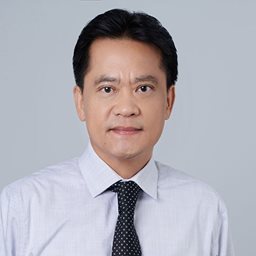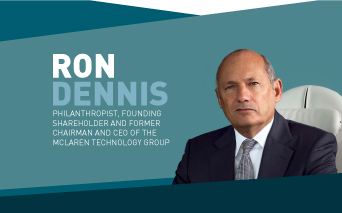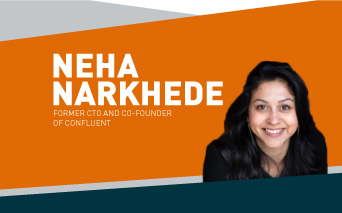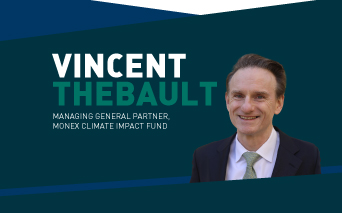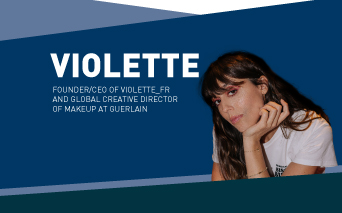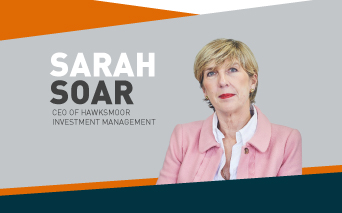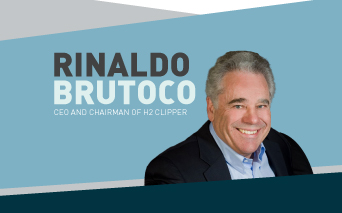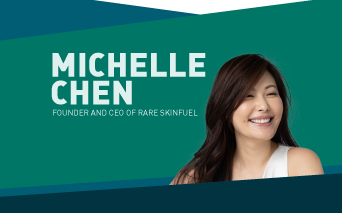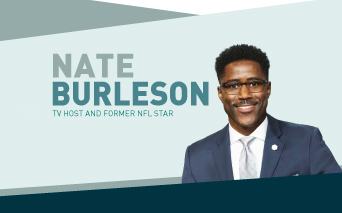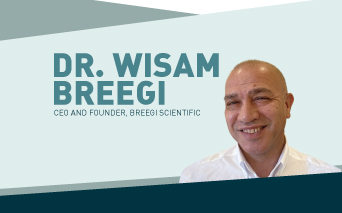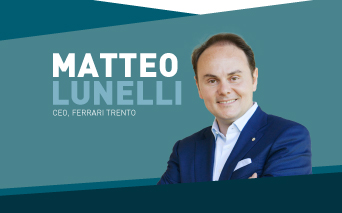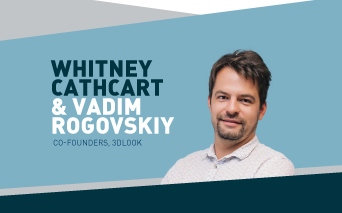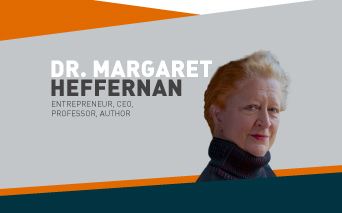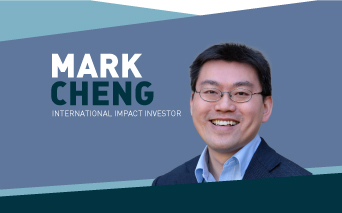Podcast
Founder and CEO of Antengene, Dr. Jay Mei, talks innovation in biotech, passion and learning from our mistakes
8 June 2021 | 24 minute listen
Episode 4 of Talking Success with Aasmah Mir
Aasmah talks to Dr Jay Mei about how science is changing the world, why he is passionate about pharmaceuticals and what he has learnt from his experiences. To hear more stories of success, click here.
Podcast host | Aasmah Mir
Aasmah Mir is an award winning broadcaster and journalist. She currently co-hosts the Breakfast Show on Times Radio and writes a regular column for The Times.
Guest: Dr Jay Mei
Dr. Mei has nearly 30 years of experience in clinical research and development of oncology therapeutics globally. He has published over 70 publications and is the co-inventor of multiple patents.
In the 1990s, Dr. Mei dedicated himself to extensive cancer research at the National Cancer Institute in the United States. In 2001, Dr. Mei joined as a Principal Scientist in the oncology team in the drug discovery division and Associate Director at Johnson & Johnson Pharmaceutical Research & Development, L.L.C.. From 2006, Dr. Mei worked as a Senior Director at Novartis Oncology, part of the Innovative Medicines division of Novartis AG. From 2008 to 2017, he served as an Executive Director of the clinical development department at Celgene (now part of Bristol-Myers Squibb). At Celgene, Dr. Mei was one of the leading members in the clinical development of multiple blockbuster drugs that represent the most significant part of Celgene’s portfolio today, including REVLIMID®, which is among the best-selling oncology therapies worldwide, and was also involved in the clinical development of POMALYST®, also one of the best-selling oncology drugs worldwide, and IDHIFA®, a first-in-class drug for the treatment of acute myeloid leukemia.
Dr. Mei has been a member of the American Society of Hematology since 2006 and was involved in the management of Antengene since April 2017. Dr. Mei also currently holds adjunct professorship at the Baruch S. Blumberg Institute.
Dr. Mei received his Doctor of Medicine (M.D.) degree from Hunan Medical University (now Xiangya School of Medicine of Central South University) in China and obtained his Doctor of Philosophy (Ph.D.) degree in pharmacology and toxicology from the University of Maryland in U.S.A.
Note: We have provided a transcript of the discussion in this podcast if you are unable to listen to the audio version. This transcript is generated using a combination of speech recognition software and human transcribers and may contain errors.
Aasmah Mir (00:02) Welcome to ‘Talking Success’ with Aasmah Mir in partnership with Withers, the international law firm.Matteo Lunelli (00:09) I think I learned that success comes from being consistent to specific values in the long-term.
Mark Cheng (00:18) For me, success is when my clients tell me about the social impact that they’ve achieved.
Margaret Heffernan (00:23) So if I cared about success, I would have stopped, but I care about other things more.
Aasmah Mir (00:30) I’m Aasmah Mir and in this series I get to chat to a whole range of successful people, CEOs, entrepreneurs, and leaders in their field. We discuss their path, how they got to this point, how they envision the next phase and, crucially, what were the moments along the way where a decision they made, or didn’t make, made all the difference?
Dr. Jay Mei (00:51) The personal aspect of what I do, well, what we do, you know, in our industry, I think that this is what keeps me up every day and doing what I’ve been enjoying to do.
Aasmah Mir (01:05) In this episode, I’m speaking with Dr Jay Mei, founder, chairman and CEO of bio-pharmaceutical company, Antengene, which focuses on research and development of drugs that treat cancers. Jay has nearly 20 years of experience in clinical research and development of oncology therapeutics globally. And during the course of his career, he has helped develop some of the most successful oncology drugs in the world. Jay, thank you so much for joining me.
Dr. Jay Mei (01:33) Thank you, Aasmah.
Aasmah Mir (01:35) I’m going to start off with a big question. I wonder for you, what was the first big decision that you remember making?
Dr. Jay Mei (01:45) Well, it will be 31 years ago, when I decided to pursue post-medical graduate education in the United States. That’s when I came to this country and then obtained my doctorate degree in pharmacology and that was of course after medical education. And then I went to US National Cancer Institute and stayed there for eight years, pursuing a career in cancer research.
Aasmah Mir (02:15) And what informed that decision? What made you think this is a big step, but I absolutely know that this is the right thing to do?
Dr. Jay Mei (02:25) There are a few things. First while I was in medical school I became particularly interested in how drugs interact with various organ systems and then later at a cellular and molecular level. So these are fascinating to me and I learned of course pharmacology as a medical student and of course, I learned how to prescribe. But then there’s still a big mystery and how these drugs were developed and why we are using them the way we have been using them and in various pathological conditions and that prompted me to the decision to pursue a graduate degree and study in pharmacology.
Aasmah Mir (03:20) I’ve got so many things I want to ask you. Let me start with the transition into the company that you now have. You had worked in medicine for over 20 years before founding Antengene. What does this company allow you to do that you couldn’t do at other companies?
Dr. Jay Mei (03:37) In my career across the span of 20 years with three companies, I was able to lead quite a few global clinical programs either in solid tumour or in haematological malignancies around the world. So these are global trials by definition and these are a collective effort of investigators or medical doctors around the world. And after more than 15 years, I had an opportunity, and my former employer Celgene had a strategy about its further development in Asia Pacific, particularly in China. In other words, how to expedite the development of its pipeline programs in that part of the world through partnership. And that also presented an opportunity for me, with the support from Celgene and to start a new company. And that’s how Antengene came about. Serendipity.
Aasmah Mir (04:50) Absolutely. Would you say the pandemic has changed the public’s attitude to life sciences innovation and if it has, in what way?
Dr. Jay Mei (05:03) I think our industry, pharmaceutical or biotech, has actually been working around the world and the public actually had little understanding. The pharma sector or biotech industry has been at the forefront of globalisation. In many ways we united the world, at least in the form of clinical trials. And then that actually enabled the speedy approval of multiple vaccines and that has been a remarkable effort. And of course that didn’t happen by chance, just overnight. And out of those are the know-hows and the personnel and the infrastructure and there were also the partnership among different countries, the health authorities. And then there are guidelines that have been issued and that is very much a global effort and in some ways I think our industry has been needing that effort and probably somewhat under appreciated by the general public. But with the pandemic. I think we all become more aware of that, but still we may not clearly understand how these vaccines or drugs have been developed combatting this dreadful disease.
Aasmah Mir (06:21) You spoke earlier about a major decision in your life. I wonder if there is a particularly defining moment in either your life or your career that perhaps shaped your decision making or put you on a certain path? Can you think of a particular defining moment?
Dr. Jay Mei (06:41) Sure. There are actually quite a few and while I was at National Cancer Institute as an oncology researcher, we had a lot of resources at our disposal and that we were able to conduct various trials and then experiments and studies. It was like an ivory tower to me, and for researchers at these very prestigious institutions, we had very little understanding about pharmaceutical industry, of course, myself included. And then to some extent, we actually looked down on them. We had the perception that these are greedy companies and they only have one thing on the mind, which is profit. Now, what happened is in the mid-90s a drug was approved called Herceptin for breast cancer patients and particularly for breast cancer patients harbouring two new gene mutations and the outcome of these patients were particularly poor.
(07:53) They did not respond very well to chemotherapy. And then Herceptin came about and then really changed the treatment paradigm. Their actual outcome or prognosis will be better once they receive Herceptin treatment. So it’s basically 180 degree change and then a few years after that, there’s another drug called Gleevec, and Gleevec was designed and developed to treat the disease called CML, Chronic Myeloid Leukaemia. But we had very few effective medicines to treat these patients, or offer to these patients or treat this particular disease until Gleevec came around and then that disease became very much manageable. 95% of the patients, if they receive Gleevec treatment will stay on it and they will be alive after five years and that would be not the case without this miracle drug to some patients. And that actually occurred in the late 90s.
(09:03) And then that prompted me to study and pay more attention to all of these various companies and pharmaceutical industry as a whole. And then the first company that called was Johnson & Johnson but, of course, I knew Johnson & Johnson very well, both our children were born in the 90s and well we used a lot of Johnson products and Johnson & Johnson diapers, and the formula and baby lotion. So I didn’t know they actually… they were working on cancer drugs as well. And of course I accepted an offer and then joined the industry and I enjoyed every moment of the past 20 years.
Aasmah Mir (09:43) Let me ask you about decisions and decision-making. I suppose I probably already know the answer to this because, you know, you work in the scientific world. So I’m presuming that your approach to making decisions is fairly logical or are you going to surprise me and tell me no, actually I go with my gut instinct?
Dr. Jay Mei (10:04) Well, actually, I was not a natural born entrepreneur. I’m a physician by training, a scientist, or a healthcare worker, and I happen to be a founder of a biotech company. Our industry is very complex and more challenging because we’re dealing with patients’ lives and developing drugs so hopefully we’ll be helping them and are across the globe with different regulations in different country and different region. And that actually is quite challenging. So that is also the reason that unlike certain other tech sector, you have some 20 year old college dropout will start a great company and then transformative in terms of how we, for example, socialise with each other, how we communicate with each other. But that’s not the case in our industry and I have yet to see a college dropout start a successful pharmaceutical company. So most of the founders are more toward the middle of their career, or even toward the end of their career. Our decision making process tend to be very thoughtful and very well laid out and articulated and sound.
Aasmah Mir (11:33) Now, obviously, there is the safety net, so to speak, of clinical trials, but still the decisions that you’re making, you know, whether they are clinical or business decisions, I suppose you could say that in the long-term they do have life or death implications for patients. And I wonder whether that pressure is something which informs you and the way that you perform, or is it something that you actually have to put out of your mind to think dispassionately?
Dr. Jay Mei (12:05) Well, as a physician by training, we learned how to think logically when the patient presents at our clinic, for example, and we treat one patient at a time. In clinical research or drug development, I constantly remind myself every data point that we are looking at, it actually represents what happened to a particular patient, and either is a side effect or a response or biological or biochemical test results and so one of the, I think, gratifications for me, because it allows us be able to develop potentially life-saving drugs for many patients, not just one patient at a time as a practicing physician. And so these are remarkable in terms of size, but also a heavy responsibility.
Aasmah Mir (13:09) Can you tell me about a decision perhaps that you didn’t enjoy making, but that had to be made?
Dr. Jay Mei (13:18) Well, there are many such occasions, unfortunately. In our industry, actually, our business, the reality is that we fail more often than we succeed. The public may not appreciate that. And that’s why it’s so expensive to develop a brand new drug and it takes years of effort and billions of dollars, and sometimes we have to stop a study and that happened in my career, not just once or twice, multiple times, and that occurs more often than not. Every single molecule that we push into a clinical trial, the chance of success is less than 10%. So every 10 drugs that we studied in the various stage of clinical studies, probably one or two will eventually be successful, and that is actually after we have screened and synthesized and studied tens of thousands of different molecules pre-clinically.
Aasmah Mir (14:29) Clearly it’s obvious really that this is long, hard, very arduous work, and often there will be no success, it’ll be… I mean failure might not be the right word, but it will have to be shelved and you have to start again. So what is it that keeps you going, because that must, you know, you think about the amount of money that’s involved, the number of staff that’s involved, the timescale that’s involved. This is huge, huge chunks of your life that could come to not very much and you have to start again. So what is it that keeps you going?
Dr. Jay Mei (15:02) Well, of course, professional gratification and the scientific curiosity and to some extent the bragging rights, right? My name is associated with a drug that has been used by tens of thousands of physicians or hundreds of thousands of patients around the world, and that is actually immeasurable and that is actually greater than any financial return. And, of course, at any given moment, most of us are healthy, but in our lifetime, all of us are patients at some time or point. So that’s inevitable. So we are developing medicines for the patients combating the diseases, but these patients could be us and that we may be benefiting from that. And then, of course, and then once in a while, it may touch you in an unexpected way, and we all know friends, acquaintances, or colleagues who are unfortunately diagnosed with a life-threatening disease.
(16:09) And then that unfortunately happened in my family as well. So I joined Celgene in 2008, and Celgene was known as a company that were developing some very, very powerful drugs, effective drugs, transformational drugs, for a disease called multiple myeloma. And about a year after I joined the company, while I was the global clinical leader of a study on the drug that was exactly designed for multiple myeloma, my own mother was diagnosed with multiple myeloma. I remembered that day when I received the phone call from my mom’s physician and he told me that I have unfortunate news, and your mom has myeloma, and then I became speechless and then I was able to help my mom given my background, but also I happened to work in multiple myeloma and developing the most cutting edge therapy at that time. It was more than 10 years ago.
(17:13) And then we were fortunate and my mom was able to receive the best care, the most advanced medicine at that time, but she was able to live with that disease for more than 10 years as a cancer survivor. As a matter of fact, she received the drug I was working on, the drug called Revlimid, and I think to me, that was nothing short of a miracle. So these are, I think, moments, if you will, career, professional, aspiration aside, the personal aspect of what I do… well what we do, you know, our industry, I think this is what keeps me up every day and doing what I have been enjoying to do.
Aasmah Mir (18:00) Okay. If you could pick one key lesson that you’ve learned from your career, what would it be?
Dr. Jay Mei (18:10) Well, remain hungry and not in a financial sense, but really the knowledge, what we can learn in every day, from each other and from while we are here and then develop portable skill sets, if you will, and then it doesn’t matter what company you will be working with, and then earn something on the job that you can take with you. And, of course, as I said, I was not a natural born entrepreneur. I never dreamed myself to be a CEO one day and actually that was not my career objective, but then when the opportunity presented itself, of course, I grasped at that opportunity. But what I’ve learned over the past years from the various assignments, it allowed me to utilise some of the skill sets that I actually did not realise I had. I think Antengene is not only a drug discovery and development company, but also we like to cultivate and mentor and grow a new generation of drug discoverers and developers, and then allow them a platform for them to maximise the potential sometimes they don’t even realise they could have, given the right opportunity, and then they will be able to achieve what they had not imagined.
Aasmah Mir (19:48) Let’s just end with some lighter quick fire questions, Jay, and all these really need is maybe one word, maybe three words at the most. So if you’re ready, the first one is what one word do you think sums up your working style?
Dr. Jay Mei (20:09) Passionate.
Aasmah Mir (20:11) Fantastic. What’s your favourite time of the work day?
Dr. Jay Mei (20:16) That’s another interesting one because every day is so busy. I think, the favourite time will be after all the meetings are over and I can pause for a moment and gather my thoughts.
Aasmah Mir (20:32) Absolutely.
Dr. Jay Mei (20:33) I know, sorry, that’s not a one word answer.
Aasmah Mir (20:35) No that was fine, don’t worry. If you had a magic wand, what one thing would you change about your products or your business?
Dr. Jay Mei (20:45) I think that eventually we will have to develop new technologies and be able to predict how a drug or a drug candidate would behave in our body, and then we can almost predict the outcome in a clinical trial. Maybe not with a 100% accuracy, but at least enhance our success rate, because now we are paying the price for we fail so often. Again, sorry, this is not a short answer or a one word answer.
Aasmah Mir (21:28) It’s okay. What is the thing, the one thing that most frustrates you, work-wise?
Dr. Jay Mei (21:33) The slow process can be frustrating, because as I said our industry is the most heavily regulated and we can work very hard around the clock, but there are certain things that are out of our hands, we just have to deal with it and sometimes it can be frustrating.
Aasmah Mir (21:55) If you had to use only one, when making a decision, would you choose your head or your heart?
Dr. Jay Mei (22:03) My heart, for sure. 100%.
Aasmah Mir (22:07) I can tell that.
Dr. Jay Mei (22:09) The brain helps, once in a while.
Aasmah Mir (22:11) I find it’s useful to have one, yes, absolutely. And just finally, if you weren’t working as a CEO, what do you think you would be doing?
Dr. Jay Mei (22:21) As a matter of fact, when I was at a very young age, this is going to surprise you, I wanted to become a journalist, a reporter, but there’s a… I think there are similarities to journalism. The human factor, if you will, and it’s not just medicine and science, but also your compassion and your desire to listen to others and to convey the message and to interact with other human beings around the world.
Aasmah Mir (22:55) Jay, thank you so much. It’s been absolutely lovely to speak to you and thank you for your time.
Dr. Jay Mei (23:00) Thank you, Aasmah, I enjoyed the conversation we just had and well thank you for the opportunity to share the Antengene story.
Aasmah Mir (23:13) Jay was such a nice guy to talk to, just so driven, so compassionate, working in a really difficult and important area of science. And he didn’t even want to be a CEO when he started out and I think that just slightly blew my mind, I have to say.
Thank you for listening to talking success. In the next episode, I’ll be speaking to Matteo Lunelli, CEO of the Italian luxury drinks company, the Lunelli Group, about running a family business.
You can find out more about Withers on their website, withersworldwide.com.
Talking Success is a feast collective production. The producer is Hannah Varrall. The executive producer is Kate Taylor, and I’m Aasmah Mir.
